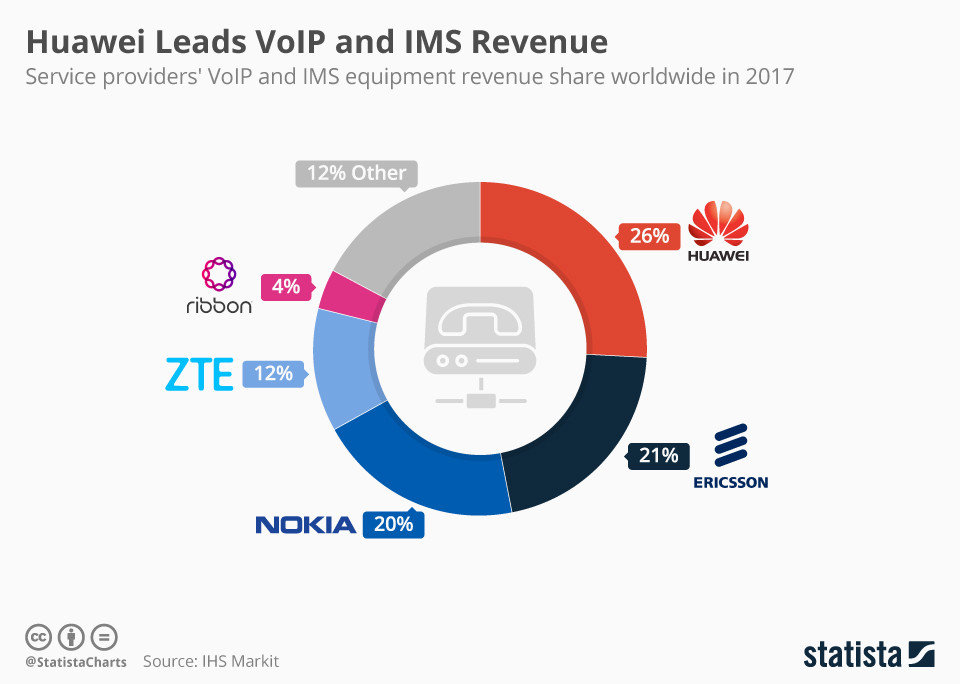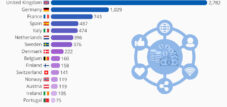Huawei, das chinesische Telekommunikationsunternehmen, hat nach Schätzungen von IHS Markit rund ein Viertel des weltweiten Umsatzes mit VoIP- und IMS-Geräten erzielt. Ericsson, das schwedische Telekommunikationsunternehmen, hält rund 21 Prozent des weltweiten Umsatzes mit VoIP und IMS, gefolgt von Nokia und ZTE.
Voice over Internet Protocol (VoIP) ermöglicht es Benutzern, Sprachanrufe über eine Breitband-Internetverbindung anstelle einer normalen Telefonleitung zu führen. Insgesamt sank der VoIP-Umsatz zwischen 2017 und 2018 gegenüber dem Vorjahr um 12 Prozent. Der Einbruch wird durch die schleppende Entwicklung des Voice over LTE (VoLTE)-Netzwerks und die stagnierenden Ausgaben begünstigt. VoLTE war der wichtigste Wachstumstreiber für VoIP und IMS, so dass die Hindernisse für die Expansion des Breitbandnetzes den VoIP-Markt behindern.
Huawei, the Chinese telecommunications company, has cornered about a quarter of global revenue from VoIP and IMS equipment, according to estimates from IHS Markit. Ericsson, the Swedish telecommunications company, holds about 21 percent of the VoIP and IMS global revenue, followed by Nokia and ZTE.
Voice over Internet Protocol (VoIP) allows users to make voice calls using broadband internet connection instead of a standard phone line. Overall the VoIP revenue dropped by 12 percent year over year between 2017 and 2018. The dip is fueled by the sluggish voice over LTE (VoLTE) network advancements and flatlined spending. VoLTE was the main driver of VoIP and IMS growth, so roadblocks for the broadband network stymie VoIP market expansion.


